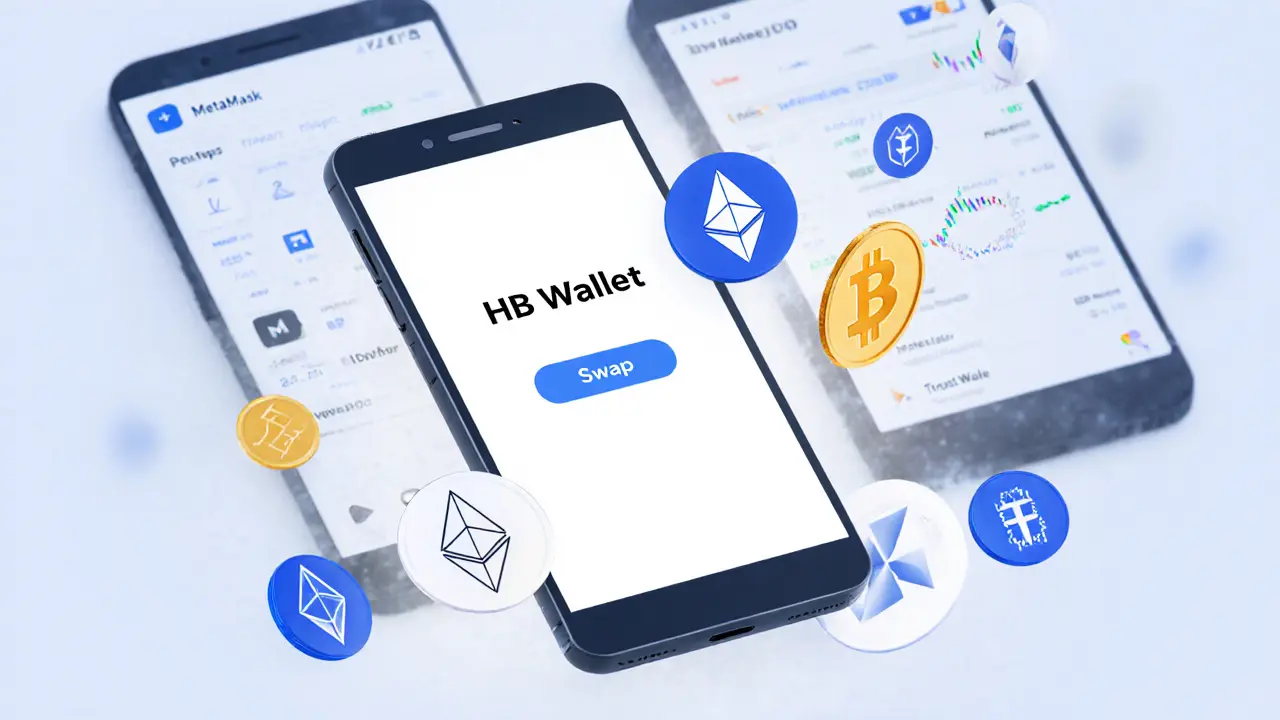Ethereum DEX
When you trade crypto on an Ethereum DEX, a decentralized exchange built on the Ethereum blockchain that lets users swap tokens directly from their wallets without a central company. Also known as non-custodial swap platform, it removes banks, brokers, and middlemen — putting control entirely in your hands. This isn’t just a tech buzzword. It’s how real people trade USDT for WETH, or swap newly launched tokens before they hit centralized exchanges — all without giving up their keys.
But not all Ethereum DEXs are the same. Some, like Uniswap, the most widely used decentralized exchange on Ethereum, known for its simple interface and deep liquidity pools, handle billions in daily volume. Others, like the ones you’ll find in our reviews below, have $0 trading volume, no team, and no future. The difference? Liquidity, audits, and real users. A DEX without liquidity is just a website with buttons. And if it doesn’t show up on CoinMarketCap or has no public code audit? It’s not a platform — it’s a trap.
Behind every good Ethereum DEX is Wrapped Asset Custody, the system that lets Bitcoin and other non-Ethereum tokens work inside DeFi apps by locking them on a central custodian and issuing a wrapped version on Ethereum. WBTC and cbBTC are the most common examples. They make cross-chain trading possible, but they also bring back centralization risks — someone has to hold the real Bitcoin. That’s why some users prefer native Ethereum tokens like ETH, USDC, or DAI — no middlemen, no custodians, just pure DeFi.
And then there’s DeFi, the broader ecosystem of open financial protocols built on Ethereum, including lending, staking, and automated trading. Ethereum DEXs are the engine of DeFi. Without them, you can’t stack yields, borrow against your NFTs, or automate trades with smart contracts. But DeFi also brings complexity — and risk. A single flawed contract can drain funds. That’s why we only review DEXs that have real usage, transparent code, and a track record.
You won’t find fluff here. No "the future of finance" hype. Just real data: which DEXs have actual volume, which ones are ghost towns, and which ones are outright scams pretending to be decentralized. We’ve looked at Wagmi on IOTA EVM, Uniswap on Celo, SharkSwap, IceCreamSwap, and dozens more. Some are niche tools for specific chains. Others are dead. A few still work — and might be worth your time.
What follows is a curated collection of honest, no-BS reviews of Ethereum DEXs and related tools. You’ll see what’s working in 2025, what’s abandoned, and what to avoid at all costs. No guesswork. No marketing spin. Just what’s real — and what’s not.
HB DEX Crypto Exchange Review: Is It Worth Using in 2025?
HB DEX is a built-in trading feature in HB Wallet that lets you swap Ethereum tokens without leaving the app. But in 2025, its lack of liquidity, advanced features, and cross-chain support makes it outdated for serious traders.
Details +